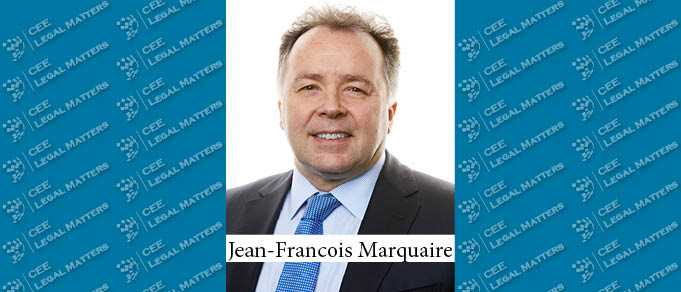An interview with Jean-Francois Marquaire of CMS, about his path from France to Russia.
CEELM: Run us through your background, and how you ended up in Russia.
Marquaire: I graduated – I can hardly pronounce these numbers – in 1980 from the University of Paris II and then continued my education in Business Law and International Law at the University of Aix-Marseille III. My career path then brought me to INSEAD’s Finance for Executives Program and HEC School of Management’s CESA Executive Human Resources Program.
I have worked in France, Europe, Africa, and North America until finally finding the best place on Earth, and I have been working and living in Russia ever since. It’s already been 15 years.
CEELM: Was it always your goal to work outside of France?
Marquaire: I was – and hope I still am – a venturesome man, a cosmopolitan who is open to the world, unlike what many might think of French people. My work as a General Counsel and Executive Officer in various businesses gave me the opportunity to travel a lot and to visit the far corners of the globe. Thus, I have worked for years overseas (Africa, USA, Latin America, etc.) and this probably impacted my DNA, since my kids inherited this love for different cultures and all of them now live outside of France.
CEELM: How would clients describe your working style? What about management style? How do you think it varies from the “common” Russian one, if at all?
Marquaire: That is a tricky question, indeed. It is better to ask them. I can only assume that if I have known and worked for some clients in Russia for 20 years by now, that would indirectly support that they like working with me and CMS.
CEELM: Are there any significant differences between the French and Russian judicial systems and legal markets? Which stand out the most?
Marquaire: The range of sources of civil law in France (and other continental law countries, like Germany) is much wider than in Russia. Among the sources of civil law of these legal systems, civil codes, and laws containing civil law, form a common ground for the system. Current trends include significant expansion and increasing complexity of the Russian civil law system of sources and its convergence with the so-called Romano-German legal system.
CEELM: What about the cultures? What differences strike you as most resonant and significant?
Marquaire: After so many years of living in Russia, I feel that I have become more Russian inside and will be biased but there are differences for sure. Some of them can sometimes represent an obstacle in doing business either in France or Russia.
For example, Russians tend to seek a quick return on investment and are very agile in catching opportunities for more money, while the French are rather conservative and averse to radical change.
Yet both Russian and French people are on the same page when it comes to culture, food, music, family, and education.
CEELM: Do you have any plans to move back to France?
Marquaire: For the moment I am perfectly happy where I am. France remains my home, but it is unlikely that I will settle there in the near future, as my country changes a lot and unfortunately not always for the better…
CEELM: Outside of Russia, which CEE country do you enjoy visiting the most, and why?
Marquaire: I was lucky indeed to have had a chance to visit all the countries in the CEE region and it is not an easy task to choose the most beautiful among them.
CEELM: What’s your favorite place to take visitors to in Moscow?
Marquaire: Moscow is for sure the place everyone needs to visit at least once in their life. It has its own energy and vibe. When we had an international meeting of 100+ CMS Tax Partners in Moscow, in 2019, we saw how all the international colleagues were amazed by the city and its caliber, its manifold character, and its openness. Besides the classic spots (Bolshoi, Red Square, Moscow center, and parks) I would also recommend visiting the Ruski restaurant, on the 86th floor of the highest skyscraper in Moscow, to enjoy the marvelous city views and traditional Russian cuisine in a modern interpretation.
This Article was originally published in Issue 8.8 of the CEE Legal Matters Magazine. If you would like to receive a hard copy of the magazine, you can subscribe here.

















